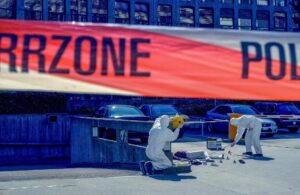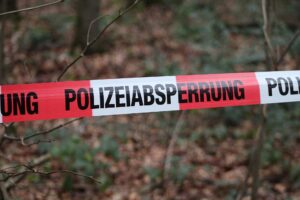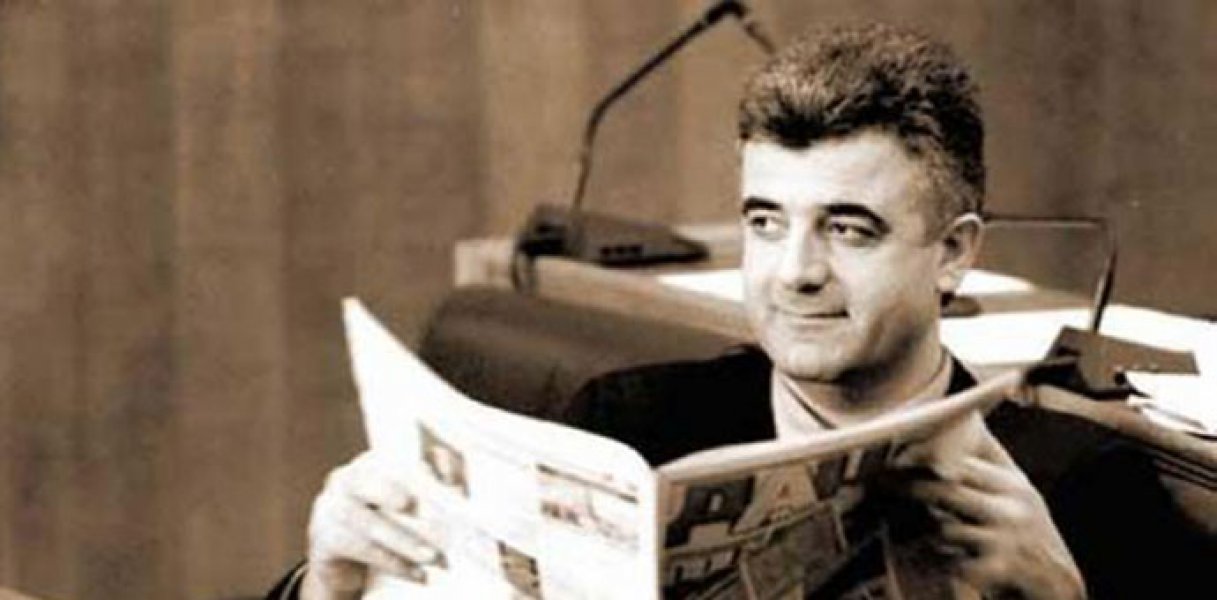PODGORICA, 15.02.20223. – At the end of last year, the Government adopted the Report of the Commission for Monitoring the Actions of Competent Authorities in Investigations of Cases of Threats and Violence Against Journalists, which for the first time includes a report on the murder of Duško Jovanović.
Since 2013 and the establishment of the first Commission, the report on the investigation into the murder of Duško Jovanović, the founder and editor-in-chief of the daily newspaper Dan, has not been adopted. The first commission, which ended its work in 2015, considered the proposal of its president Nikola Marković‘s report, which, among other things, contained conclusions and recommendations regarding the investigation into the murder of Jovanović, but that report was never adopted.
Jovanović was killed on May 27, 2004. So far, only Damir Mandić from Podgorica has been convicted for that crime, for complicity. The principals, organizers and perpetrators remain unknown.
In the Partial report on the work of the police and the prosecution in the case of the murder of Duško Jovanović, which was prepared by members of the Commission’s working group Nebojša Asanović, Biljana Knežević and Miroslav Turković, two issues that remained unexplained are highlighted.
The first unresolved issue is the purchase of the golf III car from which the murder of Jovanović was later carried out. The vehicle was bought by an unknown person from Veselin Vučeljić, and it is believed that the same person probably later brought the vehicle to Uroš Marčetić for the purpose of tinting the windows.
The Commission’s Report states that Vučeljić and Marčetić described the mentioned person very well and precisely, but that, according to the documents available to the Commission, the investigative authorities did not take any steps to discover this still unknown person. The investigators did not create a photo robot of the mentioned person on the basis of the precise statements of the witnesses, nor did they carry out identification actions, which is a common practice in similar investigations.

Photo: Pixabay.com
The commission also states that in June 2006 the deputy of the VDT Ljiljana Klikovac and the investigative judge of the High Court Radomir Ivanović participated in the hearing of the mentioned witnesses before the High Court in Podgorica. On that occasion, the witness Vučeljić stated that the mentioned person spoke with Vučeljić’s neighbor Ivan Đukić during the purchase of the vehicle. The files available to the Commission do not show that Đukić was questioned at all.
Another issue on which the Commission emphasizes is the official record of the conversation with Damir Mandić, which was made on June 5, 2004.
In a document of the Police Directorate dated February 9, 2006, signed by then director Veselin Veljović, the High Court in Podgorica is informed that “in the PD there is no, nor has a document been officially filed regarding the alleged informational interview with the accused Damir Mandić, on the circumstances of his knowledge related to the murder of Duško Jovanović”. On the other hand, during the main trial before the High Court, on June 21, 2005, Milan Vujanović, the head of the Podgorica Security Center at the time, stated: “After the deprivation of liberty, the accused Damir Mandić was questioned in the premises of the Podgorica Central Court and I remember that he gave some statement about his participation and the participation of other persons in the murder of Duško Jovanović, that an official note was made about that informational conversation, which CB Podgorica will submit to the court upon request”.
It is not stated in the Commission’s report, but Vujanović publicly confirmed again in front of TV cameras in August 2021 that the official note was made during the interrogation of Mandić shortly after the murder of Jovanović, and that he informed the then Supreme State Prosecutor Vesna Medenica about all this, who, according to him, did not react in the right way.

Photo: Pixabay.com
The information of the Higher State Prosecutor’s Office from April 2015 testifies to the fact that the official note exists, which states that during the hearing in March 2014, high-ranking police officials Tihomir Gačević and Branislav Živković confirmed their knowledge that PD officers had made an official note. It follows from their statement that the “team” that was working on the murder investigation was informed about the conversation with Mandić and that an official note was delivered to that “team”. The official note was not recorded, because it was supposed to serve only for internal use, and it was not signed because such instruction came from the “team”, and due to the fact, as stated, that it could not serve as evidence in the proceedings.
High-ranking police officials Gačević and Živković on June 5 2004, made an official note in the premises of CB Podgorica about the informative interview with Mandić, but they did not record it, nor did they enter it into the official records of the Police Directorate in accordance with the law, nor did they submit the official note to the High Court as requested, it is concluded in the report.
The VDT information does not state whether the witnesses testified about what was specifically stated in the note, what Mandić said about his and others’ participation in the murder of Jovanović.
According to the Commission’s assessment, the Higher Prosecutor’s Office did not determine what happened to such an official note, where it is now, why it is not in the case files and why it was not recorded, who ordered it not to be signed, not be recorded, that it should not be in the case file, that it could not be evidence and on what legal basis.
The commission pointed out that it is necessary to answer the following questions: where is the official note, who has it, who was all in the mentioned “team”, who from the “team” gave instructions not to sign the note, according to which legal basis, anyone from the “team” can decide and order the police officer not to sign the official note, who from the “team” gave the instruction and was authorized to decide that the note should not be recorded in the records of the Police Directorate and that can’t be evidence in the proceedings.
The commission also assessed that it is necessary to shed light on the facts related to calling and informing the then prosecutor Novak Ražnatović about the specific event and actions of the police, especially regarding the allegation that he did not come to the hearing of the arrested Mandić at the invitation of the police officers, but only after 10 o’clock and so left the police without instructions and orders from the prosecution. In the Conclusions, it is stated that it should be clarified whether the prosecutor received invitations from some other persons in connection with the event, whether he was prevented from coming due to some other specific event or whether he was not engaged in work at all at that moment, and whether this is illegal behavior of the prosecutor and whether the procedure for determining responsibility was initiated because of this and if not, why.
By answering these questions, many things can certainly be clarified and information can be obtained that can eventually lead to individual organizers, perpetrators and co-perpetrators of this crime, and by further action and establishing possible responsibility for omissions, accidental or intentional, we can at least get answers, which is why after more than 18 years since the murder of Duško Jovanović, the principals, organizers and all perpetrators of that crime still cannot be discovered and prosecuted, concludes the report of the Commission.
Based on the Report, the Commission made eight recommendations. In order to identify a person related to golf III, it is recommended to interrogate Ivan Đukić as a witness, as well as Veselin Vučetić and Uroš Marchetić, with an offer to take a polygraph test. And on the basis of these statements, create a photo robot and perform the action of facial recognition in accordance with the law.
The recommendation is to interrogate Milan Vujanović, the head of CB Podgorica at the time, again regarding the official note, as well as the circumstances of the actions of the prosecutor VDT Novak Ražnatović, and regarding the actions of other competent persons – then leading officials of the police, prosecution and judiciary.
In order to clarify the numerous unknowns surrounding the official note, it was recommended to rehear Branislav Živković and Tihomir Gačević. It was also recommended to interrogate the then director of PD Veselin Veljović regarding the note as well as his findings related to the murder of Jovanović.
Regarding the circumstances of Mandić’s non-appearance at the hearing, the Commission proposes hearing the then VDT prosecutor Novak Ražnatović. Along with the question of whether his leaving the position of the prosecutor and moving to the bar has anything to do with his actions in this case. Polygraph testing was also proposed for all witnesses.
Due to the non-proposition to hearing Ivan Đukić as a witness, the Commission recommended that the acting deputy of the VDT, Ljiljana Klikovac, and the investigating judge of the High Court, Radomir Ivanović, be heard.

Photo: Pixabay.com
As a final recommendation, the Commission states that it is necessary to initiate procedures before the competent state authorities in order to determine all facts and circumstances in order to examine the legality of the procedures and determine the possible responsibility of all officials from the Police Directorate and the Higher State Prosecutor’s Office, and possibly other persons, in connection with their actions in the investigation of the murder of Duško Jovanović.
Now it is up to the state authorities to act on the Commission’s recommendations and to try to get some new information, in order to finally get started on this almost two-decades-long investigation from the dead end.
This article was created through the project “Safety of journalists through judicial practice” implemented by the Media Union of Montenegro (SMCG). The project is supported by the Center for Monitoring and Research (CeMI) within the program “Access to justice and human rights in Montenegro – Trial monitoring project 2021 – 2023” financed by the European Union and co-financed by the Ministry of Public Administration.
The content of the article is the sole responsibility of SMCG and does not necessarily reflect the views of CeMI, the European Union or the Ministry of Public Administration.








